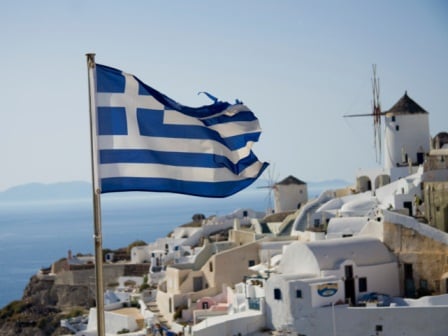Banking, finance, and taxes
PIIGS Watch: Greece Continues To Lure Back Investment
Published:
The Euro meltdown seen in 2012 looked as though it was going to bounce Greek out of the monetary union. That was then. We have noted on several occasions how investment is sneaking back into Europe and this is even happening in the lands of the PIIGS. So how does news of an agreement between Greece and the oil-rich nation of Qatar where the Middle Eastern nation will commit up to 1 billion Euros? Source: Thinkstock
Source: Thinkstock
A report today from Bloomberg coincides with other reports showing that Greece and Qatar discussed investment ventures of up to 1 billion Euros in tourism, energy, transportation and communication. A Dow Jones report from Tuesday also showed that US hedge fund group Baupost Group has even taken a 5.2% stake in OPAP SA, which is Greece’s state-owned gambling monopoly.
Qatar’s sovereign wealth arm is Qatar Holding, and it has been active elsewhere. It committed to invest up to 2 billion Euro in Italian companies and it also committed 300 million Euros to invest in French companies. Those figures are from the Qatar Holding website.
Elsewhere, the New York-listed ADRs for National Bank of Greece SA (NYSE: NBG) remain at low prices. The $1.60 share price compares to a 52-week range of $1.12 to $4.10 on concerns that recapitalization efforts will continue to dilute existing holders as it seeks to close a deal with rival Eurobank in a share swap. The Global X FTSE Greece 20 ETF (NYSEMKT: GREK) is down on Tuesday but at $19.68, it is very close to a 52-week high as the 52-week range is $8.78 to $19.93. Stocks in Athens are up about 10% year-to-date. The thinly traded ADR for Coca-Cola Hellenic Bottling Company S.A. (NYSE: CCH) hit a 52-week high of $24.55 on Tuesday.
It is amazing to see the changes that have come in Europe of late. Even with the negative news coming from live economic reports, the E.U. and its officials have kept maintaining that Europe will enter into recovery later this year. That outlook is not universal among market observers, but it requires no genius to see that the woes of Europe in 2012 have massively abated.
Greece’s borrowing rates have now dipped back under 10% after having peaked well above 20% at the peak in 2012. 24/7 Wall St. believes that the writing for a Greek exit from the Euro has been put on the wall, but we can easily see that this pressure has vanished over recent weeks. The two key problems we foresee are first that Greece has an entire history of not living up to international financial standards, and second is that the ability for a no-confidence vote to be called at any time allows for the Greek citizenry to ouster its elected officials at any time.
All that being said, imagine if you took a stab at Greek debt when it was so distressed that the yield was over 20%. Keep in mind that Greek unemployment is close to 26% and estimates for Gross Domestic Product are looking for contraction again in 2013.
Want retirement to come a few years earlier than you’d planned? Or are you ready to retire now, but want an extra set of eyes on your finances?
Now you can speak with up to 3 financial experts in your area for FREE. By simply clicking here you can begin to match with financial professionals who can help you build your plan to retire early. And the best part? The first conversation with them is free.
Click here to match with up to 3 financial pros who would be excited to help you make financial decisions.
Thank you for reading! Have some feedback for us?
Contact the 24/7 Wall St. editorial team.